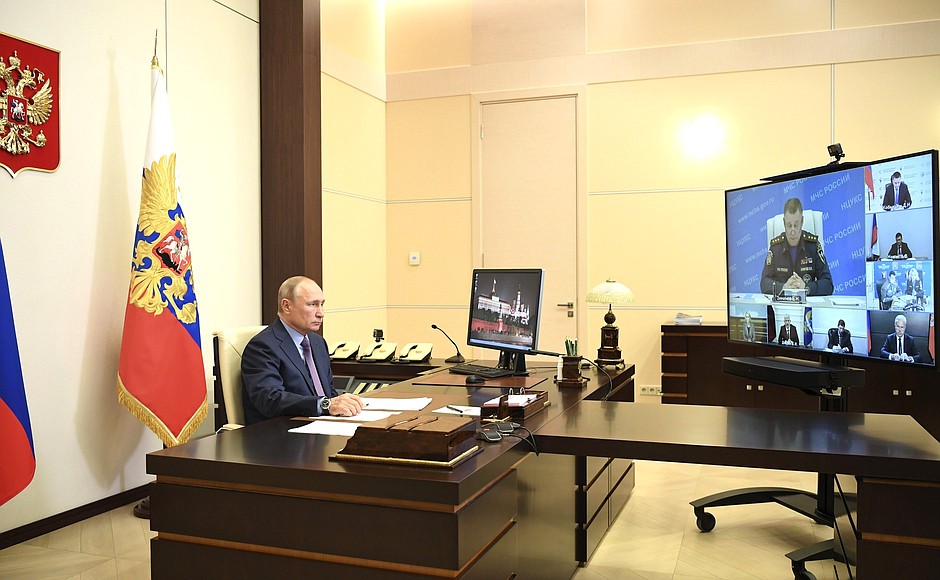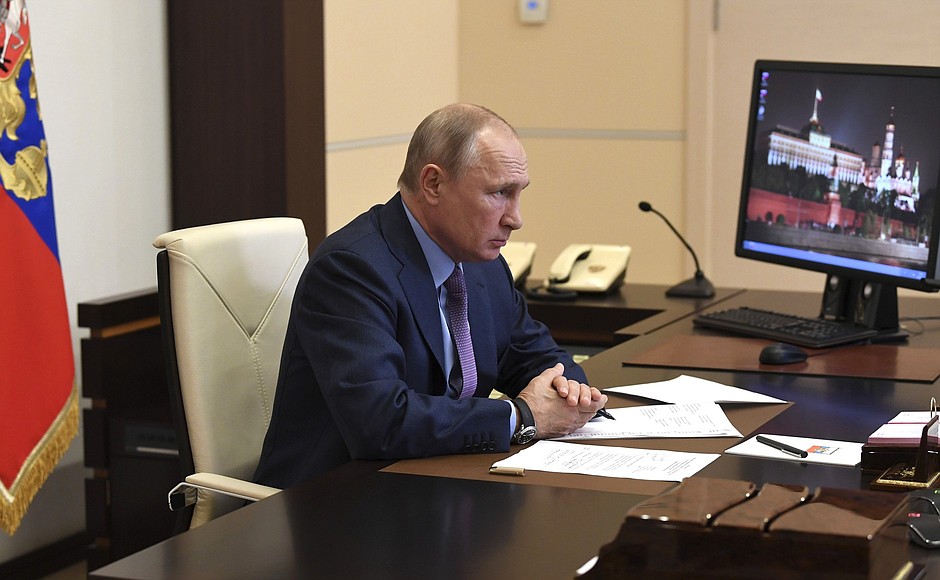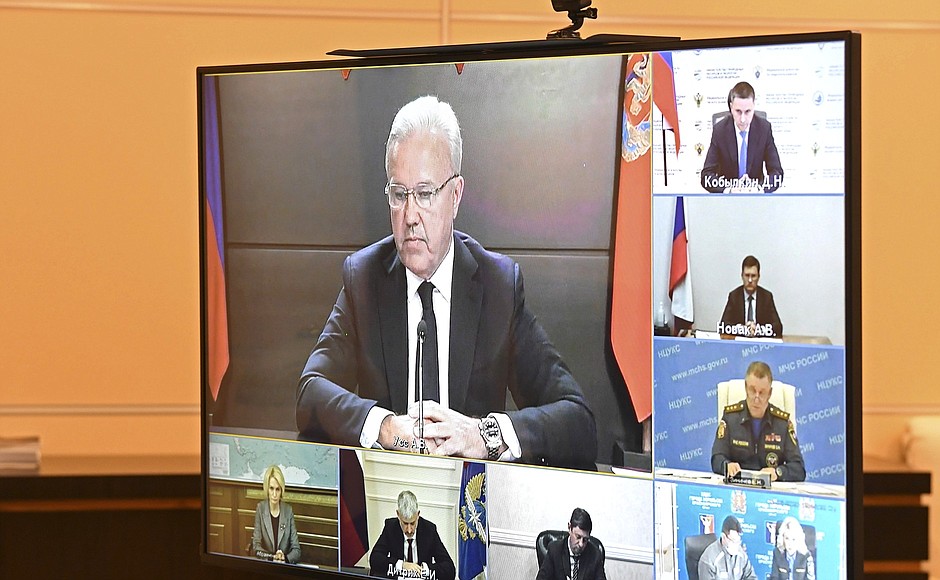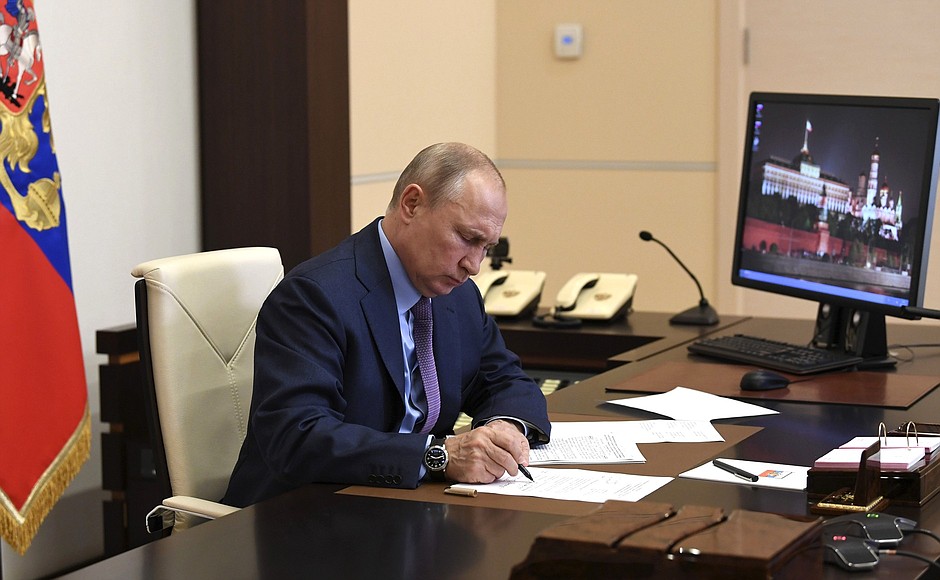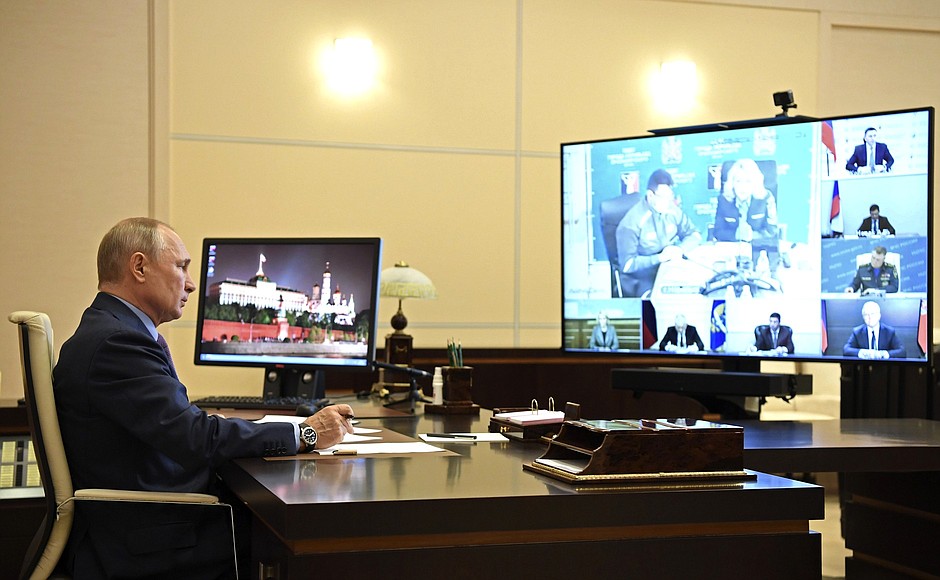The meeting was attended by Deputy Prime Minister Viktoria Abramchenko, Minister for Civil Defence, Emergencies and Natural Disaster Relief Yevgeny Zinichev, Transport Minister Yevgeny Ditrikh, Minister of Natural Resources and Environment Dmitry Kobylkin, Energy Minister Alexander Novak, Head of the Federal Service for Supervision of Natural Resources Svetlana Radionova, Deputy Head of the Federal Service for Environmental, Technological, and Nuclear Supervision Alexei Ferapontov, Governor of the Krasnoyarsk Territory Alexander Uss, and Sergei Lipin, director of the Norilsk-Taimyr Energy Company, which owns the facility where diesel fuel spill took place.
* * *
President of Russia Vladimir Putin: Good afternoon, colleagues,
On May 29 at around 9 am Moscow time, a large amount of diesel fuel leaked from a damaged reserve tank onto a motor road leading to the TPP-3 [thermal power plant] in Norilsk. The accident took place at the industrial site of the Nadezhdinski Metallurgical Plant, and part of the spilled petrochemicals, a considerable amount actually, seeped into the Ambarnaya River.
Mr Zinichev [Emergencies Minister Yevgeny Zinichev], I would like to ask you to begin this meeting by updating us on the current situation, the causes of the accident and your proposals on cleaning up the spill. Proceed, please.
Minister for Civil Defence, Emergencies and Natural Disaster Relief Yevgeny Zinichev: Mr President,
First of all, I would like to say that on May 29, according to preliminary information, the tank was depressurised due to the subsidence of the foundation piles. As a result, the fuel spilled on the technological road and then ignited. At the same time, as you already said, the fuel continued to leak into the waters of the Daldykan and Ambarnaya rivers; fortunately, there are no water intakes in them. The Emergencies Ministry units received information on the emergency via the Unified Duty Dispatch Service only on May 31. All this time, the company tried to localise the consequences of the spill on its own.
On the same day, the Krasnoyarsk Territory Governor was informed, and a meeting of the emergency commission was held. On June 1, a rescue unit of the Marine Rescue Service (Ministry of Transport) arrived at the airport in Norilsk with eight tonnes of cargo, including oil booms and two tonnes of sorbent. The Norilsk Avia helicopter delivered the cargo to the area near the mouth of the Ambarnaya River. The emergency response group of the Emergencies Ministry is working on site.
Measures are being taken to localise the spread of the spill, oil booms have been installed, and work is underway to collect oil products, contaminated water and soil. A group has been formed involving professional emergency response teams. The group is expected to be expanded.
Tomorrow, the Emergencies Ministry’s aircraft will fly 100 people from the Siberian Rescue Centre to the emergency area. In addition, the Ministry’s Mi-8 takes personnel directly to the area.
Localising the consequences of the spill requires extensive work to collect oil products in the river and adjacent land. Currently, 100 tonnes of oil products and contaminated soil have been collected. Of course, the pressing issue is their disposal.
This concludes my report, Mr President.
* * *
Vladimir Putin also listened to reports and answers to his questions from other participants in the meeting, made comments and stated that he would instruct law enforcement agencies to give a legal assessment of all the actions of officials.
In addition, the President agreed with Mr Zinichev’s proposal to declare a federal state of emergency, which will allow, in particular, involving federal resources in relief efforts, and also asked the Minister to launch work to prevent further negative environmental impacts as soon as possible and address the key problem of the disposal of the collected oil products.
